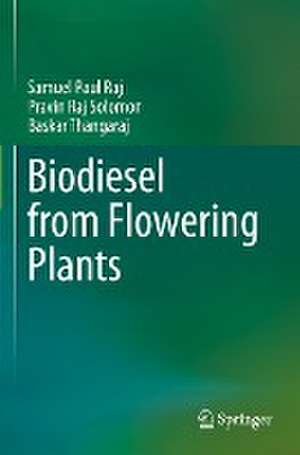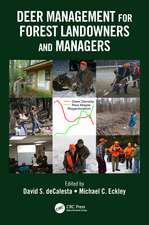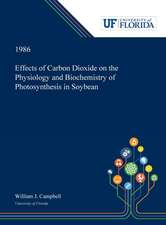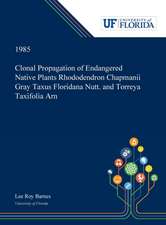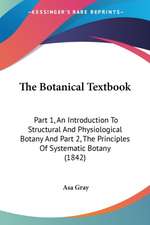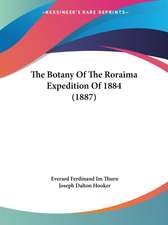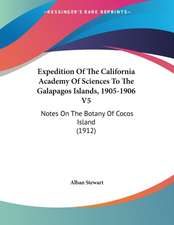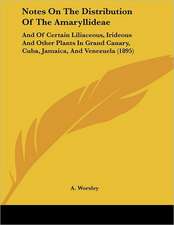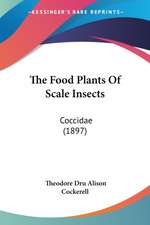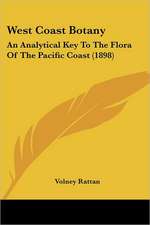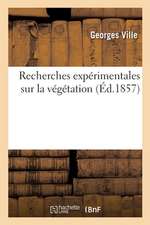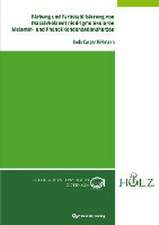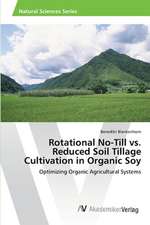Biodiesel from Flowering Plants
Autor Samuel Paul Raj, Pravin Raj Solomon, Baskar Thangarajen Limba Engleză Paperback – 20 dec 2022
Biodiesel, now prepared from major vegetable oils, has become a compulsion to offset the dwindling reserve of petro-diesel, which naturally intrudes into the cooking oil demand. This has necessitated search for new sources. The book consolidates the biodiesel production from oils being extracted from conventional plants and also from a plethora of new and non-conventional plants along with their habit and habitats, history of biodiesel’s invention, explanation on species-wise biodiesel process variables, catalytic inclusions, global standards, fuel properties varying with species, blending benefits, cost effectiveness, shelf life, ignition characteristics, fuel consumption and engine performances with eco-friendly exhaust.
This book is of immense use to teachers, researchers, scientists of climatology and carbon footprint, energy consultants, fuel chemists, students of agriculture and forestry, automobile engineering, industrial chemistry, environmental sciences and policy makers or anyone who wishes to scale up the biodiesel industry.
| Toate formatele și edițiile | Preț | Express |
|---|---|---|
| Paperback (1) | 1126.84 lei 6-8 săpt. | |
| Springer Nature Singapore – 20 dec 2022 | 1126.84 lei 6-8 săpt. | |
| Hardback (1) | 1133.30 lei 6-8 săpt. | |
| Springer Nature Singapore – 19 dec 2021 | 1133.30 lei 6-8 săpt. |
Preț: 1126.84 lei
Preț vechi: 1374.19 lei
-18% Nou
Puncte Express: 1690
Preț estimativ în valută:
215.62€ • 222.45$ • 179.94£
215.62€ • 222.45$ • 179.94£
Carte tipărită la comandă
Livrare economică 26 martie-09 aprilie
Preluare comenzi: 021 569.72.76
Specificații
ISBN-13: 9789811647772
ISBN-10: 9811647771
Pagini: 675
Ilustrații: XXIV, 675 p. 1 illus.
Dimensiuni: 155 x 235 mm
Greutate: 0.96 kg
Ediția:1st ed. 2022
Editura: Springer Nature Singapore
Colecția Springer
Locul publicării:Singapore, Singapore
ISBN-10: 9811647771
Pagini: 675
Ilustrații: XXIV, 675 p. 1 illus.
Dimensiuni: 155 x 235 mm
Greutate: 0.96 kg
Ediția:1st ed. 2022
Editura: Springer Nature Singapore
Colecția Springer
Locul publicării:Singapore, Singapore
Cuprins
Chapter 1. Introduction.- Chapter 2. History of Biodiesel.- Chapter 3. Anacardiaceae.- Chapter 4. Apocynaceae.- Chapter 5. Arecaceae.- Chapter 6. Asteraceae.- Chapter 7. Betulaceae.- Chapter 8. Brassicaceae.- Chapter 9. Caryocaraceae.- Chapter 10. Chrysobalanaceae.- Chapter 11. Clusiaceae.- Chapter 12. Combretaceae.- Chapter 13. Compositae.- Chapter 14. Cornaceae.- Chapter 15. Cucurbit.- Chapter 16. Cyperaceae.- Chapter 17. Dipterocarpaceae.- Chapter 18. Euphorbiaceae.- Chapter 19. Fabaceae.- Chapter 20. Irvingiaceae.- Chapter 21. Linaceae.- Chapter 22. Magnoliaceae.- Chapter 23. Malvaceae.- Chapter 24. Meliaceae.- Chapter 25. Nyssaceae.- Chapter 26. Oleaceae.- Chapter 27. Papavaraceae.- Chapter 28. Pedaliaceae.- Chapter 29. Poaceae.- Chapter 30. Putranjivaceae.- Chapter 31. Rosaceae.- Chapter 32. Rutaceae.- Chapter 33. Salicaceae.- Chapter 34. Salvadoraceae.- Chapter 35. Sapindaceae.- Chapter 36. Sapotaceae.- Chapter 37. Schisandraceae.- Chapter 38. Simaroubaceae.- Chapter 39. Simmondsiaceae.- Chapter 40. Solanaceae.- Chapter 41. Sterculiaceae.- Chapter 42. Theaceae.- Chapter 43. Zygophyllaceae.- Chapter 44. Catalyst for Transesterification.- Chapter 45. Standards for Biodiesel.
Notă biografică
Dr. Samuel Paul Raj graduated in Biology from Madurai Kamaraj University, India, as a rank holder in 1972, and obtained his Master’s degree in 1974 from Annamalai University, India, as a university best student and medalist. During his PhD research on Environmental Biology (1983) at Tamil Nadu Agricultural University, India, he received a gold medal for being the best researcher. He became Professor and Head of the School of Energy Environment and Natural Resources of the Madurai Kamaraj University in 1993 and its Senior Professor in 2004. He was made Scientific Adviser to the International Foundation for Science, an organization of 92 countries, in 1985. He received JC Bose Memorial Award in 2010 and became a fellow of the Tamil Nadu Academy of Sciences in 2014. He has authored 11 books, produced 31 PhDs, and 53 publications. He also served in the Editorial Board of two international journals.
Dr. Pravin Raj Solomon obtained his graduate, postgraduate, and doctoral degrees in Biotechnology from Madurai Kamaraj University, India. He was a Postdoctoral Associate of the Yale University, USA. He served as Senior Assistant Professor for 1 year in the Department of Biotechnology at Mepco Schlenk Engineering College in India and for 3 years at MAHSA University, Malaysia. He also served SASTRA - Deemed to be university, Thanjavur, India, for 3 years as an Assistant Professor (Research). He has 26 research publications and authored 2 books.
Dr. Baskar Thangaraj obtained his two Masters degrees in Energy Sciences and Physics from Madurai Kamaraj University, and a Master of Philosophy in Energy Studies from the Gandhigram Rural Institute – Deemed to be University, India. He completed his doctoral (DSc) degree on bionanocatalysts for biodiesel production at the Tsinghua University, Beijing, China. He continued his postdoctoral studies at Jiangsu University, China. Currently, he is at King Mongkut's University of Technology Thonburi, Thailand, as a Postdoctoral Fellow. He has published 23 research papers and authored a chapter in the book Current and Future Perspectives on Lipid-Based Biofuels.
Dr. Pravin Raj Solomon obtained his graduate, postgraduate, and doctoral degrees in Biotechnology from Madurai Kamaraj University, India. He was a Postdoctoral Associate of the Yale University, USA. He served as Senior Assistant Professor for 1 year in the Department of Biotechnology at Mepco Schlenk Engineering College in India and for 3 years at MAHSA University, Malaysia. He also served SASTRA - Deemed to be university, Thanjavur, India, for 3 years as an Assistant Professor (Research). He has 26 research publications and authored 2 books.
Dr. Baskar Thangaraj obtained his two Masters degrees in Energy Sciences and Physics from Madurai Kamaraj University, and a Master of Philosophy in Energy Studies from the Gandhigram Rural Institute – Deemed to be University, India. He completed his doctoral (DSc) degree on bionanocatalysts for biodiesel production at the Tsinghua University, Beijing, China. He continued his postdoctoral studies at Jiangsu University, China. Currently, he is at King Mongkut's University of Technology Thonburi, Thailand, as a Postdoctoral Fellow. He has published 23 research papers and authored a chapter in the book Current and Future Perspectives on Lipid-Based Biofuels.
Textul de pe ultima copertă
This book offers an exhaustive coverage of process modifications in biodiesel production from oil drawn from 84 oleaginous plant species occurring in all parts of the world, thereby enlisting the scope and potential of many new and non-conventionally obscure plant sources.
Biodiesel, now prepared from major vegetable oils, has become a compulsion to offset the dwindling reserve of petro-diesel, which naturally intrudes into the cooking oil demand. This has necessitated search for new sources. The book consolidates the biodiesel production from oils being extracted from conventional plants and also from a plethora of new and non-conventional plants along with their habit and habitats, history of biodiesel’s invention, explanation on species-wise biodiesel process variables, catalytic inclusions, global standards, fuel properties varying with species, blending benefits, cost effectiveness, shelf life, ignition characteristics, fuel consumption and engine performances with eco-friendly exhaust.
This book is of immense use to teachers, researchers, scientists of climatology and carbon footprint, energy consultants, fuel chemists, students of agriculture and forestry, automobile engineering, industrial chemistry, environmental sciences and policy makers or anyone who wishes to scale up the biodiesel industry.
This book is of immense use to teachers, researchers, scientists of climatology and carbon footprint, energy consultants, fuel chemists, students of agriculture and forestry, automobile engineering, industrial chemistry, environmental sciences and policy makers or anyone who wishes to scale up the biodiesel industry.
Caracteristici
Explores the potential of unconventional flowering plants for biodiesel production
Discusses cost effective biodiesel production pathways
Explains species wise biodiesel process variables
Discusses cost effective biodiesel production pathways
Explains species wise biodiesel process variables
